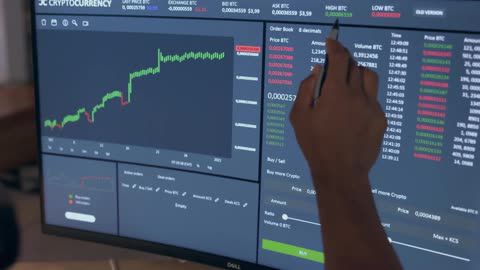In India, the Bombay Stock Exchange and the National Stock Exchange of India serve as the primary venues for securities trading. These exchanges function as organised marketplaces where investors and traders transact in shares and other financial instruments through registered brokers or stockbroking firms.
These exchanges serve as vital platforms for companies to raise capital, investors to trade securities, and the overall functioning of the Indian capital market. While both NSE and BSE share similar goals, they have distinct differences that set them apart.
What is National Stock Exchange (NSE)?
The National Stock Exchange (NSE) is a leading stock exchange in India, playing a crucial role in the country's financial landscape. Established in 1992, the NSE has rapidly grown to become one of the largest and one of the most technologically advanced stock exchanges in the world. It serves as a platform for buying and selling various financial instruments, including equities, derivatives, currencies, and debt securities. The NSE's impact on India's economy, investment landscape, and financial markets is profound, making it an integral institution in the nation's journey towards economic growth and development.
Founded by leading financial institutions, the NSE introduced a modern, automated trading platform to India's capital markets. It began operations in the wholesale debt market in 1994. NSE recognised as a stock exchange by SEBI in 1993, it began operations in 1994, starting with the wholesale debt market, followed by the launch of the cash market segment. The Nifty and Bank Nifty serve as key benchmarks for the Indian equity market.
The NSE offers a diverse range of indices, including the Nifty 50, Nifty Bank, Nifty 500, Nifty Midcap 150, Nifty Smallcap 250, and Nifty MidSmallcap 400. The Nifty 50, comprising 50 major Indian stocks, is a widely followed gauge of the Indian equity market's performance. As of August 2023, the NSE had a total market capitalisation of over $3.5 trillion, ranking it eighth globally.
The NSE has consistently held the position of the world's largest derivatives exchange in recent years, including 2019, 2020, and 2021. As of September 2023, the NSE had a base of 33.3 million active investors.
What is Bombay Stock Exchange?
The Bombay Stock Exchange (BSE), often referred to as the BSE Limited, is one of the oldest and most significant stock exchanges in India and globally. Founded in 1875, it has played a pivotal role in shaping India's financial landscape and has evolved into a key platform for trading securities and facilitating capital formation.
The Bombay Stock Exchange, initially an open-outcry trading platform, has undergone significant evolution to incorporate modern electronic trading systems. Its iconic Phiroze Jeejeebhoy Towers remain a symbol of India's financial markets.
Over time, BSE has expanded its product offerings to include a diverse range of financial instruments, such as bonds, derivatives, mutual funds, and exchange-traded funds. This diversification has strengthened its position as a comprehensive financial marketplace.
The SENSEX, BSE's flagship index, comprises 30 of the largest and most actively traded companies on the exchange. It serves as a benchmark for the Indian stock market, closely watched by domestic and international investors. Other indices include S&P BSE Auto, S&P BSE Bankex, and S&P BSE 500.
As of November 9, 2023, BSE boasted a total market capitalisation of ₹3,20,76,062 crore with 4,812 listed companies. This substantial market capitalisation solidifies its status as one of the leading stock exchanges in India and globally.



